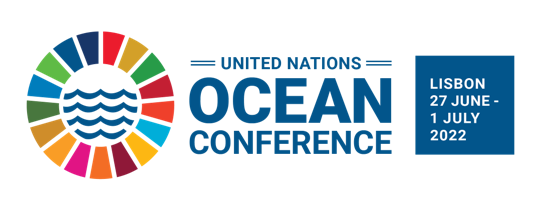Convened under the auspices of the United Nations and co-hosted by the Governments of Kenya and Portugal, the “2022 United Nations Conference to Support the Implementation of Sustainable Development Goal 14: Conserve and sustainably use the oceans, seas and marine resources for sustainable development” (or the 2022 UN Ocean Conference) will be held from 27 June – 1st July 2022 in Lisbon, Portugal. The overarching theme of the 2022 UN Ocean Conference is “Scaling up ocean action based on science and innovation for the implementation of Goal 14: stocktaking, partnerships and solutions”.

As an accredited organization, China Biodiversity Conservation and Green Development Foundation (CBCGDF) sent a delegation to attend the 2022 United Nations Ocean Conference.
On June 28, President Surangel Whipps Jr. of Palau was joined by Dr. Sylvia Earle, Debbie Ngarewa-Packer, Co-leader Te Pāti Māori, Member of Parliament, Aotearoa/New Zealand and Josaia Voreqe "Frank" Bainimarama, the Prime Minister of Fiji announced their opposition to deep sea mining and the launch of a new alliance to prevent the destructive industry from getting off the ground without effective and in depth research on the array of potential consequences.
“If no moratorium is put in place, mining of the deep seas could begin by July 2023, threatening one of the world’s largest carbon sinks as well as fragile ocean ecosystems. 622 marine science & policy experts from over 44 countries warn that deep sea mining would result in an irreversible loss of biodiversity and could threaten other benefits to humanity, including future medicines and fisheries for tuna and other species.”
A science based precautionary approach to deep sea mining is emerging as one of the defining issues of the 2022 UN Ocean Conference being held in Lisbon hosted by the governments of Kenya and Portugal. The venue for this session was packed to "standing room only" with at least the same number of avid participants overflowing into adjacent areas.
This is very timely as next month the International Seabed Authority (ISA) will decide an important matter. In July 2021 Nauru made use of a rule embedded in the U.N. Convention on the Law of the Sea (UNCLOS) that could start mining in two years in the Pacific’s Clarion-Clipperton Zone (CCZ). The Metals Company (TMC), sponsored by Nauru, have provided assurances that they will work to ensure minimal environmental impact. How will that be checked? How can indigenous knowledge relevant to seabed mining be included? TMC recently announced it had just finished testing its nodule collector vehicle in the North Sea, and that trials would soon start in the CCZ. Who will bear the liability for environmental harm?
Mining 500,000 km2 (193,000 mi2) of the CCZ would impact an area three times larger — the combined size of Spain, Portugal, France, Belgium and Germany — with noise and sediment plumes. Should we forge ahead with deep-sea mining in the midst of the climate crisis rather than look for alternative materials to build renewable energy technologies? Are we not creating a new problem trying to solve another problem? This new initiative forged at the UN Ocean Conference could be a game-changer.
By/Fred C. Dubee
Checked/James Crabbe
Editor: Linda
Contact the editors:

Contribution
Do you know? CBCGDF is a non-profit organization. We rely on crowd-funding and
donations.You have the opportunity to help us to advance biodiversity conservation. Donate TODAY to power up the movement to make it a better world for all life.
https://www.paypal.me/CBCGDFChina
http://www.cbcgdf.org/English/ConfirmDonaTion/0.html
